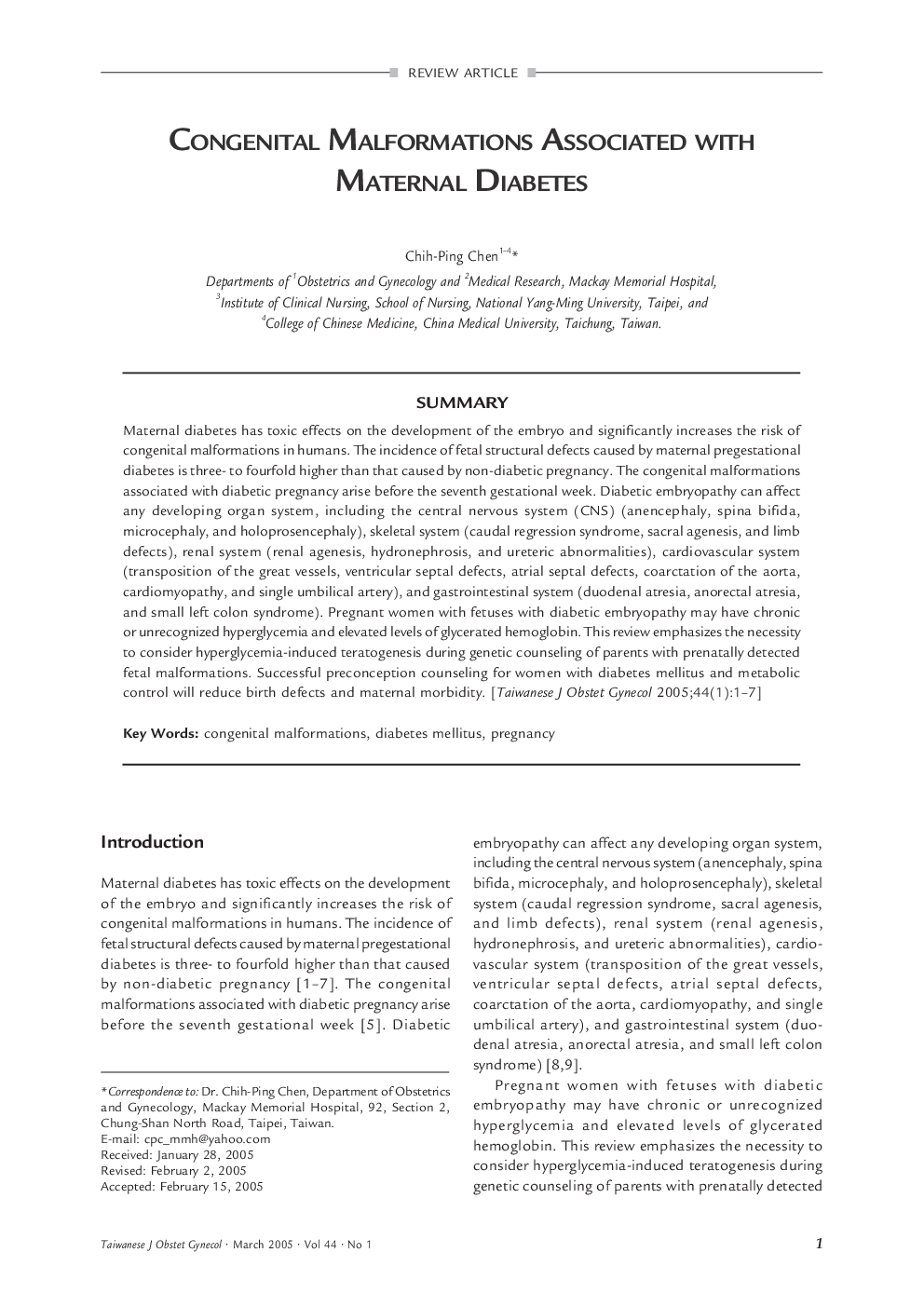| Article ID | Journal | Published Year | Pages | File Type |
|---|---|---|---|---|
| 10070342 | Taiwanese Journal of Obstetrics and Gynecology | 2005 | 7 Pages |
Abstract
Maternal diabetes has toxic effects on the development of the embryo and significantly increases the risk of congenital malformations in humans. The incidence of fetal structural defects caused by maternal pregestational diabetes is three- to fourfold higher than that caused by non-diabetic pregnancy. The congenital malformations associated with diabetic pregnancy arise before the seventh gestational week. Diabetic embryopathy can affect any developing organ system, including the central nervous system (CNS) (anencephaly, spina bifida, microcephaly, and holoprosencephaly), skeletal system (caudal regression syndrome, sacral agenesis, and limb defects), renal system (renal agenesis, hydronephrosis, and ureteric abnormalities), cardiovascular system (transposition of the great vessels, ventricular septal defects, atrial septal defects, coarctation of the aorta, cardiomyopathy, and single umbilical artery), and gastrointestinal system (duodenal atresia, anorectal atresia, and small left colon syndrome). Pregnant women with fetuses with diabetic embryopathy may have chronic or unrecognized hyperglycemia and elevated levels of glycerated hemoglobin. This review emphasizes the necessity to consider hyperglycemia-induced teratogenesis during genetic counseling of parents with prenatally detected fetal malformations. Successful preconception counseling for women with diabetes mellitus and metabolic control will reduce birth defects and maternal morbidity.
Related Topics
Health Sciences
Medicine and Dentistry
Obstetrics, Gynecology and Women's Health
Authors
Chih-Ping Chen,
